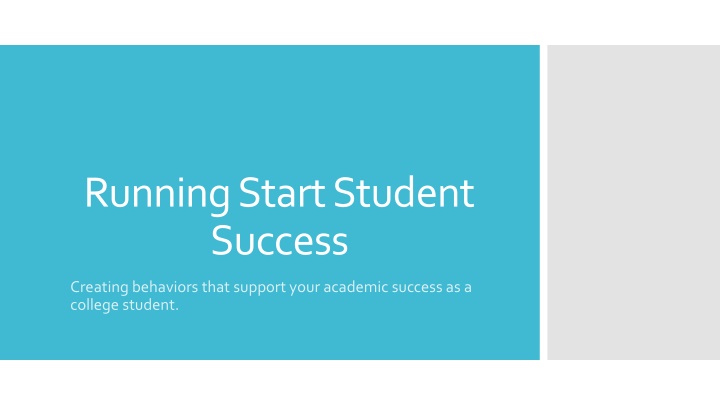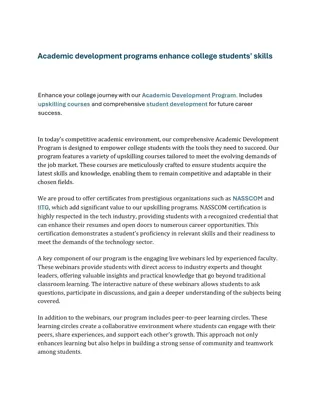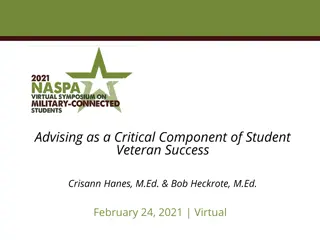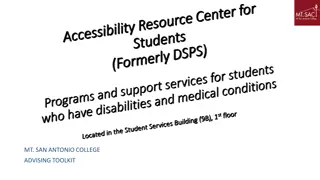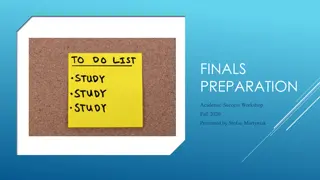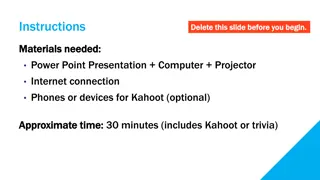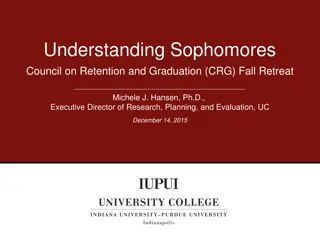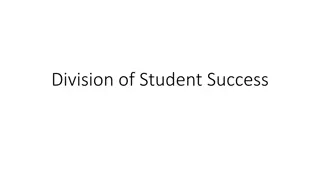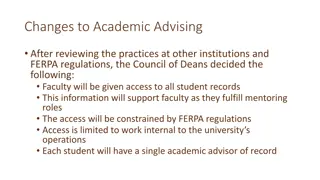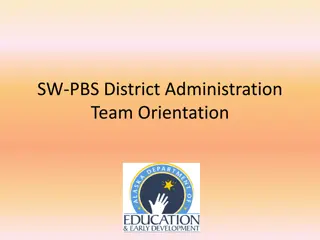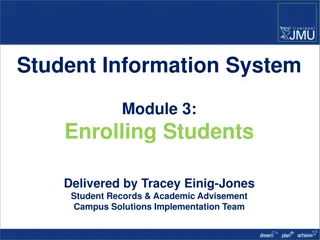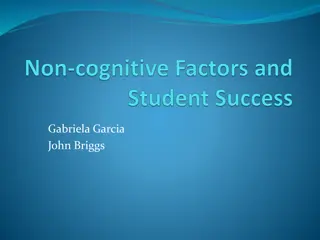Tips for Academic Success as a College Student: Running Start Insights
Learn behaviors for academic success in college as a Running Start student, understand the differences between high school and college expectations, take charge of your success, communicate effectively, and engage with advisors and professors. Be proactive, manage your time effectively, and stay organized to excel in your academic journey.
Download Presentation

Please find below an Image/Link to download the presentation.
The content on the website is provided AS IS for your information and personal use only. It may not be sold, licensed, or shared on other websites without obtaining consent from the author.If you encounter any issues during the download, it is possible that the publisher has removed the file from their server.
You are allowed to download the files provided on this website for personal or commercial use, subject to the condition that they are used lawfully. All files are the property of their respective owners.
The content on the website is provided AS IS for your information and personal use only. It may not be sold, licensed, or shared on other websites without obtaining consent from the author.
E N D
Presentation Transcript
Running Start Student Success Creating behaviors that support your academic success as a college student.
Behaviors of a successful Running Start student:
High School College Understand the difference between High School and College expectations: multiple roles, FERPA, academic success monitored by student single role with streamlined schedule and one location, progress monitored by parents/teachers all stuff must be done on time, most studying done on own time, not much review time most work done in class, lots of review, make-ups available manage your own time, syllabus, 10-12 hours per week in class, 10 week quarters, 2 hours of homework per credit outside of class time structured by others, teachers remind, spend 6 hours in class each day, 30 hours a week, 36 week long, 0-2 hours of homework Communicate absences ahead of time to professor, may influence grade excused absences by calling office, may/may not influence grade, semester system FERPA, parents have limited access to information, expected to know read course syllabus and know what to do, use professor s office hours, communicate via email HS teachers may contact parents and student directly, available during school hours
Communication is expected from you, not your parents. You will be treated like a regular college student and should be the ones communicating with your Running Start Advisors and college instructors. Meet with your Running Start Advisor and High School counselor regularly to ensure you stay on track with HS graduation and Clark degree requirements. Be a good communicator Get help when you need it! Ask lots of questions. Take advantage of your professor s office hours. Write down your questions/concerns before you meet with your Advisor or instructor so that you are prepared.
You are in charge of your academic success, no one else is! Use your course syllabus and reference it often Keep track of important dates and deadlines and make note of them in a planner Check your Clark email daily Check your grades weekly Attend class and take good notes every day Maintain communication with your professors and ask lots of questions Be a responsible student.
Plan for at least 2 hours of homework and studying outside of class per credit you take. For example: 15 credits is about 30 hours of homework and studying outside of class each week Develop strong time management skills. Scheduling Have a planner to track important dates and deadlines outlined in course syllabus Create a schedule that works for you, plan blocks of time for studying, create balance in your life.
Check out Student Life webpage for upcoming events and ways to get involve Ask for help when you need it and make use of academic resources available to you: Student support services Begin with your end goal in mind. Have a clear path of what you want to accomplish at Clark while in Running Start: Career Services Participate in your classes. Oftentimes, participation is a part of your grade. Be a student that takes initiative.
Youve Got This!
